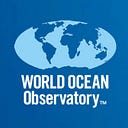RESCUE: part three, Observation & Science
Better communications of ocean science are imperative for those millions around the world who live by and rely on the ocean for survival.
RESCUE is a multi-part series outlining a new plan for the ocean and a new perspective to enable a new set of actions: from the smallest to the largest solutions and inventions, to radical methods and policy changes for a sustainable future.
Ocean science is the entrance to the hydro-sphere, the aqua-centric world which connects us all. That science is an empirical method for acquiring knowledge, and from the first explorers at sea, our awareness and knowledge of the ocean has grown incrementally based on centuries of observation and application of the scientific method — asking the question, researching the topic, speculating, experimenting, analyzing, and reporting an outcome — a refinement of what we know through scientific findings.
Once the earth was flat, ships fell off the edge and monsters lurked in the margins. Then the earth was round; its mass discovered and parsed, its depths revealed; and knowledge of its workings, inhabitants, changes over time, inter-relation with climate and circulation of water revealed as a three and four dimensional model of the primary natural system in which we swim, or drown.
We speak here of modern science, the objectives and actions that extend the process. Today, there is a UN Decade for Ocean Science, a Global Ocean Observation System of fixed and floating monitors and satellite views, a multi-national program to map 100% of the ocean floor, national ocean agencies and policies sponsoring public and private research institutes, vessels, and oceanographers comprising an enormous (and very expensive) effort to provide the data, the collected statistics, the measurements and hypotheses, the resultant deductions and theories, that add up to a massive scientific enterprise that presumably adds up to a body of knowledge from which policies and actions may be derived.
There is a paradox therein: an uncertainty always as a counter force to certainty, as if there can never be a final answer — and it is true that the history of natural science and oceanography would demonstrate that disequilibrium over time. If knowledge is never final, if there is always a question of contradiction latent in the data, how can we make policy, set law, write regulation, and establish the context, scope of action to apply what is our knowledge? Are we to be forever paralyzed by this uncertainty, or is it an insidious excuse to avoid and delay decisions that the circumstances insist are required? Is there inherent in the method a secret prolongation that keeps us from the conviction, political will, and application of what we know? If science is essential, its sophistication and meaning so evident, how can we allow it to impede our response?
There are other forms of knowledge of course: historical, experiential, emotional, collective and individual. Through such capacity, there is in each of us the ability to decide, if we are actually given the choice. There is far more wisdom in the body politic than some scientists and governments acknowledge when that public is informed. If there is a single disconnect between science and public action regarding the ocean, it is the failed communication between the two bodies, the inability or indifference of some scientists and policy-makers to connect, demonstrate, or explain. There are programs to train scientists to communicate, among themselves, to the press, and to the constituents for whom their conclusions address an immediate need. These beg the question How do we articulate what we know? Words, graphs, maps, visualizations? And how do we incorporate that articulation into a newspaper or magazine article, a public media post, a film for television, a streamed video, an environmental website, or a formal or informal classroom? There is an international movement for ocean literacy, with principles and learning objectives, curriculum and lessons that remain unused because they are outside the conventions, the approved professional methodologies, the strict schedules, and the limited resources in schools. In fact, there is no communications imperative for ocean science to be translated, packaged, distributed, and presented to the millions around the world who live by and rely on the ocean for survival. They represent a vast movement of interested, involved, dependent citizens worldwide, and they remain disqualified and disconnected from the information, the conversation, the knowledge, and the engagement by a culture that knows best, even when the science proves otherwise.
This is not working. We must learn how to share what we know. The hydrosphere demands it. We need a plan: thus R.E.S.C.U.E :
R for renewal
E for environment
S for society
C for collaboration
U for understanding
E for engagement
PETER NEILL is founder and director of the World Ocean Observatory, a web-based place of exchange for information and educational services about the health of the world ocean. He is also host of World Ocean Radio, upon which this blog is inspired. World Ocean Radio celebrates 15 years this year, with more than 660 episodes produced to date.
